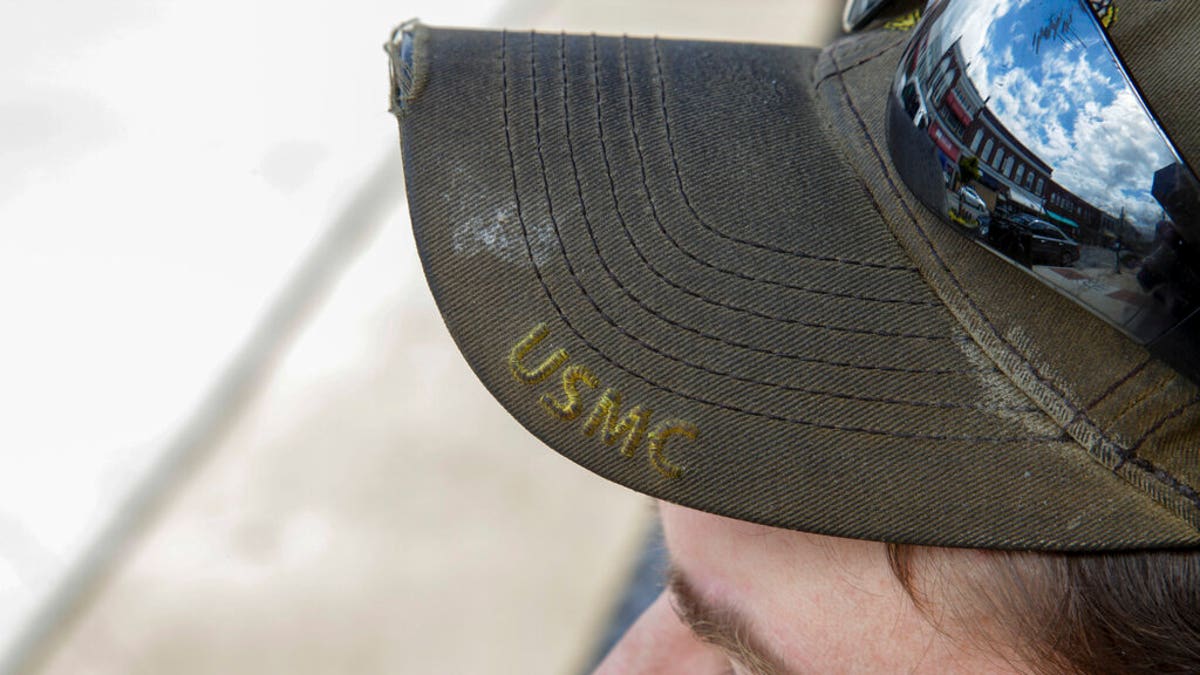Sean Parnell reacts to Veteran unemployment rate surging amid coronavirus crisis
Retired U.S. Army Infantry Captain, Pennsylvania Congressional candidate Sean Parnell joins ‘Fox and Friends.’
Get all the latest news on coronavirus and more delivered daily to your inbox. Sign up here.
Veterans’ advocacy groups say a surge of mental health needs is on the horizon as the coronavirus pandemic strains resources and increases social isolation.
During the pandemic, the U.S. Department of Veterans Affairs and its partner mental health providers have treated thousands of veterans through telehealth appointments. But some veterans' advocates worry the already understaffed VA medical facilities can't keep up and that telehealth isn't enough.

FILE: A photo showing a hat of U.S. Marine Corps veteran Chad Sneary in Mooresville, N.C. (AP)
A White House task force established by President Trump was expected to release a report this that would provide a national roadmap to boost mental health care and curb persistently high suicides numbers among veterans. The plan was abruptly shelved in March due to the outbreak.
An administration official told The Associated Press that officials planned to unveil the plan around Memorial Day. Karen Pence, wife of the vice president, will help launch the effort.
VA officials said telehealth medical appointments jumped from 20,000 in February to nearly 154,000 in April. Many of the department's partners have moved most or all of their mental health appointments to telehealth.
MOTHER’S DAY OUTRAGE: WOMAN SEEN DRIVING OVER GRAVES AT TEXAS VETERANS CEMETARY
For years, the government reported that 20 veterans die by suicide each day, about 1.5 times higher than non-veterans. There were 6,139 suicide deaths in 2017, which is up 129 from the previous year, even as the total veteran population declined.
The government says about two-thirds of those were not under VA care, pointing to a need for improved outreach.
"We have been very busy during the COVID crisis — with our efforts focused on getting in front of the mental health crisis that we know is coming," Barbara Van Dahlen, executive director of the task force, told the AP. The group has boosted social media efforts during the pandemic.
CLICK HERE TO GET THE FOX NEWS APP
At Cohen Veterans Network, website traffic has increased, including a spike between midnight and 4 a.m. Saturdays when people are alone or experiencing insomnia.
Anthony Hassan, the president and chief executive officer of Cohen, said he doesn't believe the country's mental health system is prepared for the surge likely to happen from the pandemic. Cohen is opening 10 new centers by the end of next year and hiring more staff.
"The one thing I don't want to be is too late. ... We need to be talking now about how we can make sure we are ahead of this," Hassan said.
The Associated Press contributed to this report.


